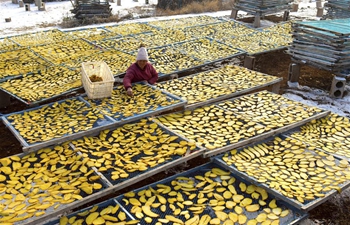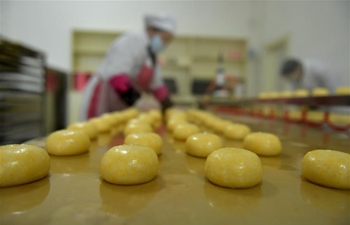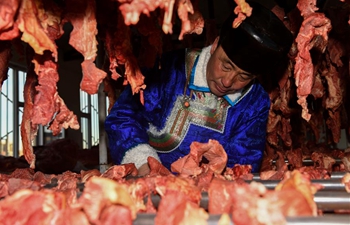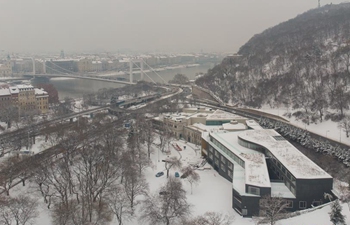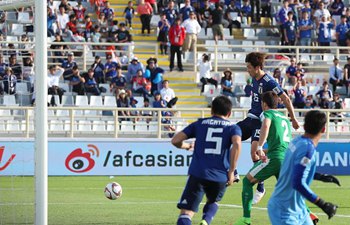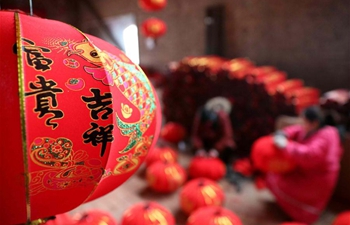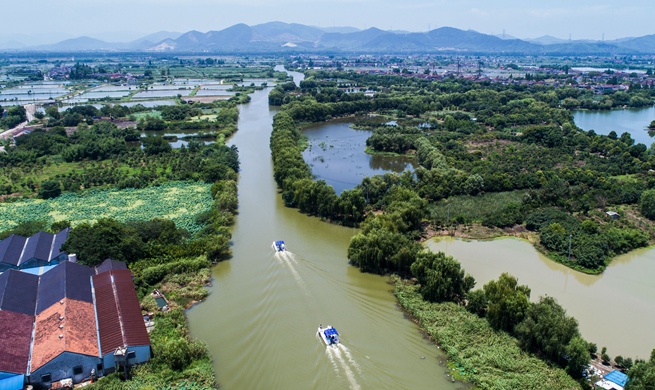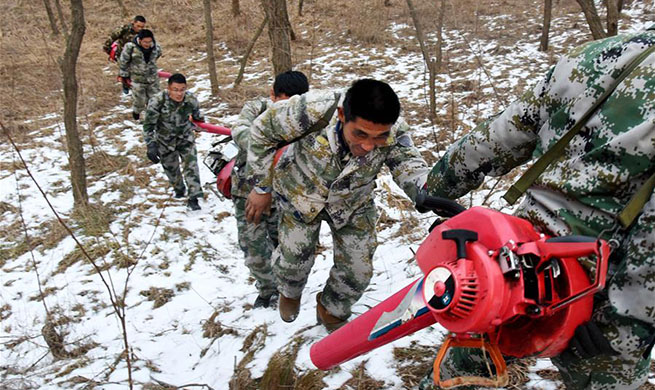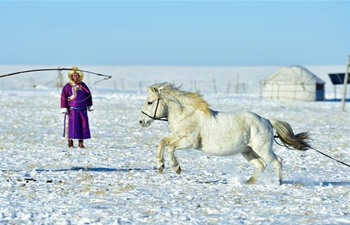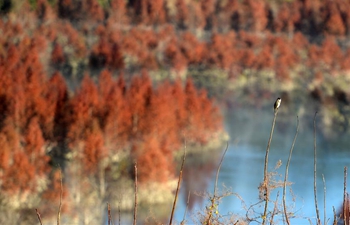CHENGDU, Jan. 10 (Xinhua) -- Ahe Tiequ was kicked off the bus during her first trip ever down the mountains to the outside world.
She was just 15, and had to trek two days to visit her relatives in the neighboring township. It was the only time she, now 54, had ever left her hometown of Wajiji -- a cliffside village in remote Daliang Mountain in southwest China's Sichuan Province.
Wajiji in Meigu County of Liangshan Yi Autonomous Prefecture used to be called "Mafeng Village," or leprosy village, as leprosy patients expelled from their hometowns gathered on the isolate and barren land decades ago.
Amid China's efforts to eradicate absolute poverty by 2020, Wajiji Village announced last month that it had already cast off poverty.
Leprosy is a chronic infectious disease that can cause nerve damage, leading to muscle weakness and atrophying, and permanent disability. Leprosy patients also suffer from discrimination due to their disability.
The Yi ethnic group used to believe the disease was caused by "demons," regarding leprosy patients as "ghosts."
Brought to Wajiji by her sick father at the age of three, Ahe was called a "second generation of leper." Although Ahe had not contracted the disease, she remembered clearly how she and other villagers were looked down upon.
"Nobody dared to walk on the same path we had taken," she said.
By the 1980s, almost half of the 300-plus villagers had leprosy.
"Many of them had physical disabilities," said Luo Qingguo, former director of the disease control center of Meigu County.
Over the past 30 years, Luo has climbed the mountain over 100 times to treat patients at the village.
The leprosy was preventable, non-inheritable and with proper treatment, curable, he said.
Luo also contacted government departments and non-government organizations to raise funds for the village and welcome volunteer services.
In the late 1990s, the village finally had a power supply, and an iron bridge to the village was built. Mafeng Village was renamed "Kangfu" (rehabilitation). In 2008, when most of the patients had been cured, the village was renamed "Wajiji," which means "under the cliff" in the Yi language.
In 2014, when China unveiled targeted poverty alleviation measures, remote Wajiji geared up to battle poverty.
The winding mountain path that took villagers hours to climb was replaced by a 6-km cement road. Impoverished households were allocated two-storey houses with flush toilets and water heaters, said Aer Ermo, village Party chief.
A clinic, small library and recreational room were built.
Local government has encouraged villagers to raise goats and grow Sichuan pepper, a popular spice plant. Per capita annual income exceeded 5,000 yuan (731 U.S. dollars) last year.
The village now has a kindergarten where two teachers take care of preschoolers and teach them Mandarin. Many children walk from the village to primary and high schools in the neighboring county.
The 13 remaining leprosy patients, mostly elderly with no family, have been cured and moved to a rehabilitation center funded by the county government.
Veteran Qumu Eri, 76, lives in the center. Qumu moved to the village after he was diagnosed with leprosy. Now, he likes to wear his military uniform and sing the songs he learned in the army.
"Although I get older and older, my life becomes better and better," he said.
Yang Xiuming, 28, comes every year as a volunteer, taking care of the elderly and helping with chores at the center. "Over the past eight years, I have witnessed the great changes in the village. I am so delighted to have been a small part of it."




